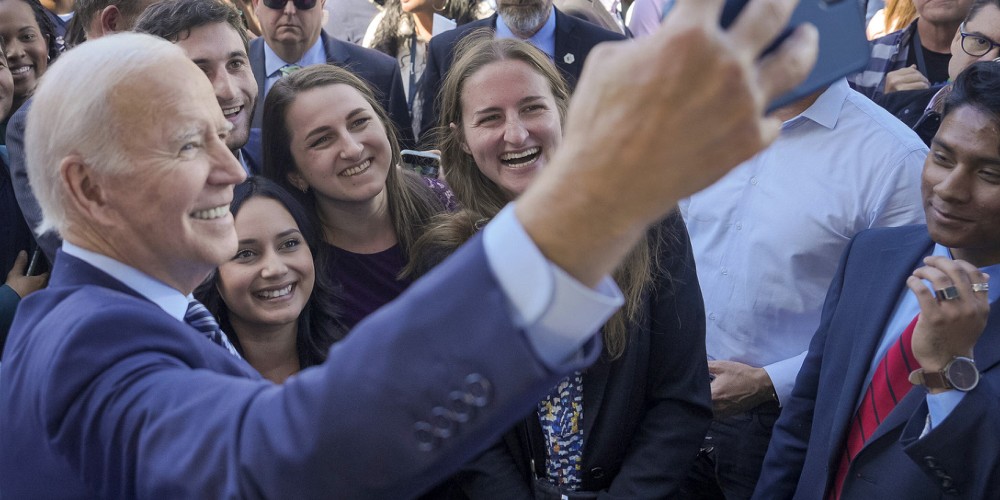BY SAEED NAQVI
“If much of the Western media is to be believed, I write this column from a country brutalised by an absurd tinpot caudillo, Hugo Chavez, who routinely jails any journalist or politician with the temerity to speak out against his tyranny”. This was written by Owen Jones of London’s The Independent from Caracas on the recent Venezuelan elections. And guess what happened: Chavez won handsomely.
But media malice continues. As an example Jones cites, among others Toby Young, author of “How to Lose Friends and Alienate People”. According to Young, Venezuela is ruled by a “Marxist tyrant” and a “Communist dictator”. The defeated opponent in the presidential elections, Henrique Capriles, was portrayed by contrast as an inspiring, dynamic democrat determined to end Venezuela’s failed socialist experiment and open the country to much-needed foreign investment.
Doesn’t this yearning for “much needed foreign investment” by most of the losing politicians in Latin America resemble the sentiment of the Indian ruling class?
Owen Jones’, critique of the global media habitually dissembling about world leaders who thumb their noses at the West, is all the more compelling because it comes from one of the West’s very own. Jones continues “The reality of Venezuela could not be more distant from the coverage, but the damage is done: even many on the left regard Chavez as beyond the pale. Those who challenge the narrative are dismissed as “useful idiots”, following in the footsteps of the likes of Beatrice and Sidney Webb who, in the 1930s, lauded Stalin’s Russia, oblivious to the real horrors.”
Those in the media who were cheerleaders for Henrique Capriles, the defeated opposition candidate, must seriously reflect why they got this election so hopelessly wrong. They may take heart from the fact that they are not the first Chavez baiters who galloped straight into the windmill. There have been a procession of others, possibly more illustrious than they, who have been eating humble pie though 15 elections that Chavez has successfully been through ever since he won the first one in 1999.
He must be one of the most exasperating figures for the West to stomach. It would be easy to smother him under heaps of abuse had he silenced the media, painted blood signs on the doors of the rich, filled jails with his opponents: it would be gratifying driving nails into the coffin of such a monstrous tyrant. But he has done none of this. He has simply ignored the rich to their devices and improved the lot of the poor, by every development yardstick.
He has tolerated the private media, having 90 percent of the audience share. This “free” media dishes out daily doses of vitriol against Chavez. The person the “free” media rails against trounces his opponent the object of its adoration. It must be galling that the independently owned media has become so insubstantial, so impotent, unable to terminate the political life of a dictator they so hate? Here is room for the study of “free” media sans credibility, something the global media is rapidly becoming in pursuit of an agenda in yet another theatre – Middle East. What riles the media is this: “he has not even given us the opportunity to accuse him of repressing the media, or of blocking rallies against him which, in fact, are galore.”
Is he able to survive because he rigs elections? But all elections have been declared free by International Observers. One of these observers, President Jimmy Carter, described the country’s election process as “the best in the world”.
A mention of George W. Bush at this juncture would be proper because no recent US President has tried harder to stop Chavez. In fact the losing candidate on this occasion, Capriles, tried to do in 2002, with Bush’s help, what an earlier American administration succeeded in affecting in Chile: a Pinochet style coupe. And this effort at toppling Chavez was totally backed by Venezuela’s “free” media. Allowing a candidate with this record to contest against him reflects on his cultivated cockiness.
The Independent’s correspondent asks: “I wonder what would happen to Sky New and ITN if they had egged on a coup d’état against a democratically elected government in Britain?”
Much to the West’s chagrin, a series of South American leaders are only mildly distinguishable from Chavez in their leftist hue. In fact Brazil’s Lula de Silva spoke for most Latin American leaders when he said: “A victory for Chavez is not just a victory for the people of Venezuela but also a victory for all the people of Latin America. This victory will strike another blow against imperialism.”
Geographically, Fidel Castro and Chavez are within whispering distance from the US which has not concealed its incurable dislike for both. Castro has been on the hit list for half a century.
Why is it then that Saddam Hussain can be picked up from a rathole, Qaddafi sodomized by a knife in front of TV cameras, similar plots can be in the works for Bashar al Assad, but hate objects in the vicinity of the US are treated differently. Why? There could be interesting reasons.
Considering that India is part of BRICS, it cannot be indifferent to developments in Latin America. Ofcourse, there will a qualitative change in interest if the promised energy pipeline from China to Venezuela proceeds beyond the drawing boards.
(Saeed Naqvi is senior Indian journalist, television commentator, interviewer, and a Distinguished Fellow at Observer Research Foundation. Mr. Naqvi is also a mentor and a guest blogger with Canary Trap)

